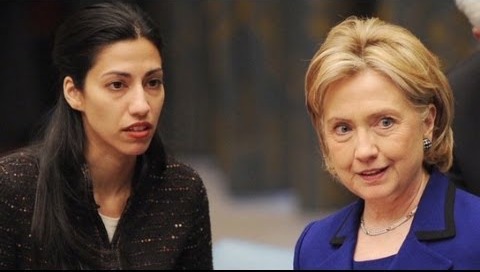William Campbell, a Russian lobbyist, will be testifying before a congressional committee about the “Uranium One” deal where a Russian-backed company bought a firm which owned uranium mines here in the United States.
He went undercover as an FBI confidential informant to look into Hillary Clinton and her role in the deal.
“We do have a witness who is a confidential informant who wants to talk about his role in this and we are in contact with the Justice Department to release him from a non-disclosure agreement,” DeSantis told reporters.
According to the Washington Post Opens a New Window., Marc E. Elias, an attorney representing the Clinton campaign and the DNC, retained the Washington firm Fusion GPS to conduct opposition research that resulted in the infamous and controversial Trump dossier. The dossier contained allegations that the Russian government had collected compromising information about Trump and that the Kremlin was engaged in an active effort to assist his presidential campaign.
“This is what happened to the so-called Russian ‘collusion delusion.’ It was invented, it was fabricated by the left to explain the disaster that was Hillary Clinton’s campaign, and now it has come back to blast a hole through the hall of the DNC,” Sebastian Gorka, former Deputy Assistant to President Trump said in an interview Tuesday on FOX Business’ “Lou Dobbs Tonight.”
As reported by John Solomon and Alison Spann for The Hill:
Federal agents used a confidential U.S. witness working inside the Russian nuclear industry to gather extensive financial records, make secret recordings and intercept emails as early as 2009 that showed Moscow had compromised an American uranium trucking firm with bribes and kickbacks in violation of the Foreign Corrupt Practices Act, FBI and court documents show.
They also obtained an eyewitness account — backed by documents — indicating Russian nuclear officials had routed millions of dollars to the U.S. designed to benefit former President Bill Clinton’s charitable foundation during the time Secretary of State Hillary Clinton served on a government body that provided a favorable decision to Moscow, sources told The Hill.
The racketeering scheme was conducted “with the consent of higher level officials” in Russia who “shared the proceeds” from the kickbacks, one agent declared in an affidavit years later.
Rather than bring immediate charges in 2010, however, the Department of Justice (DOJ) continued investigating the matter for nearly four more years, essentially leaving the American public and Congress in the dark about Russian nuclear corruption on U.S. soil during a period when the Obama administration made two major decisions benefiting Putin’s commercial nuclear ambitions.
The first decision occurred in October 2010, when the State Department and government agencies on the Committee on Foreign Investment in the United States unanimously approved the partial sale of Canadian mining company Uranium One to the Russian nuclear giant Rosatom, giving Moscow control of more than 20 percent of America’s uranium supply.
[…]
The final court case also made no mention of any connection to the influence peddling conversations the FBI undercover informant witnessed about the Russian nuclear officials trying to ingratiate themselves with the Clintons even though agents had gathered documents showing the transmission of millions of dollars from Russia’s nuclear industry to an American entity that had provided assistance to Bill Clinton’s foundation, sources confirmed to The Hill.
The lack of fanfare left many key players in Washington with no inkling that a major Russian nuclear corruption scheme with serious national security implications had been uncovered.
On Dec. 15, 2015, the Justice Department put out a release stating that Mikerin, “a former Russian official residing in Maryland was sentenced today to 48 months in prison” and ordered to forfeit more than $2.1 million.
Ronald Hosko, who served as the assistant FBI director in charge of criminal cases when the investigation was underway, told The Hill he did not recall ever being briefed about Mikerin’s case by the counterintelligence side of the bureau despite the criminal charges that were being lodged.
“I had no idea this case was being conducted,” a surprised Hosko said in an interview.
Likewise, major congressional figures were also kept in the dark.
Former Rep. Mike Rogers (R-Mich.), who chaired the House Intelligence Committee during the time the FBI probe was being conducted, told The Hill that he had never been told anything about the Russian nuclear corruption case even though many fellow lawmakers had serious concerns about the Obama administration’s approval of the Uranium One deal.
“Not providing information on a corruption scheme before the Russian uranium deal was approved by U.S. regulators and engage appropriate congressional committees has served to undermine U.S. national security interests by the very people charged with protecting them,” he said. “The Russian efforts to manipulate our American political enterprise is breathtaking.”


